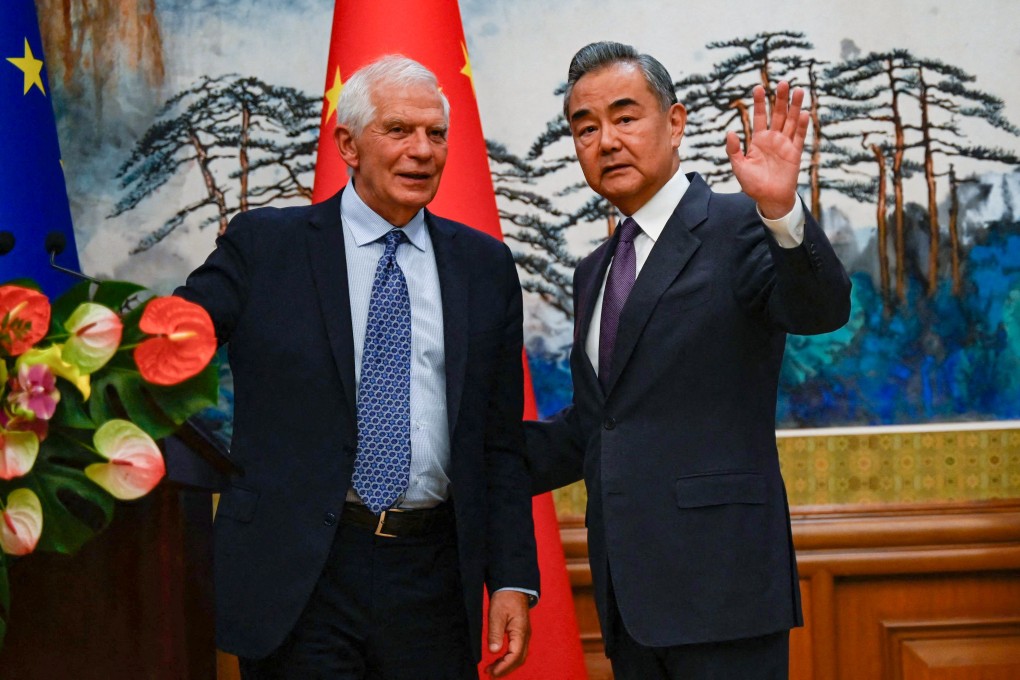Advertisement
Opinion | China must work on trade and trust with EU if it wants warm long-term ties
- Beijing views relations as challenging but satisfactory, while Brussels is deeply unhappy about the trade imbalance and distrustful of China’s ties with Russia
- There are shared interests but how China handles its trade with Europe and its diplomacy around the Ukraine and Middle East conflicts will be the ultimate testing grounds
Reading Time:3 minutes
Why you can trust SCMP
12

When top European Union officials landed in China last week for the EU-China summit with President Xi Jinping, they had a long list of concerns.
The visit by the power trio of European Commission president Ursula von der Leyen, European Council president Charles Michel and EU foreign policy high representative Josep Borrell – which came after visits by the commission’s vice-presidents Valdis Dombrovskis and Vera Jourova – is part of a build-up that saw increasingly high-level visits taking place in both Brussels and Beijing.
At the EU-China summit, significant trade imbalances were at the top of the EU agenda. Especially driven by concerns of member states such as Spain and Italy, Michel and von der Leyen asked Xi for meaningful action to address what they see as major obstacles to Europe’s market access to China.
Advertisement
In this context, Italy’s recent decision to leave the Belt and Road Initiative is noteworthy. Italy was the largest economy in the world to have signed up to the Chinese plan. Unfortunately, its departure is part of an emerging trend of European countries scaling back their cooperation with China.
Estonia, Latvia and Lithuania have left a cooperation framework established between China and several central and eastern European countries, with the Czech Republic increasingly critical of the format.
Advertisement
Meanwhile, Brussels has made clear it will press ahead with its “de-risking rather than decoupling” strategy. A loosening of the economic relationship between the EU and China is bad news for both parties and should be avoided. The question is if and how the existing trade imbalances can be corrected.
Advertisement
Select Voice
Choose your listening speed
Get through articles 2x faster
1.25x
250 WPM
Slow
Average
Fast
1.25x
